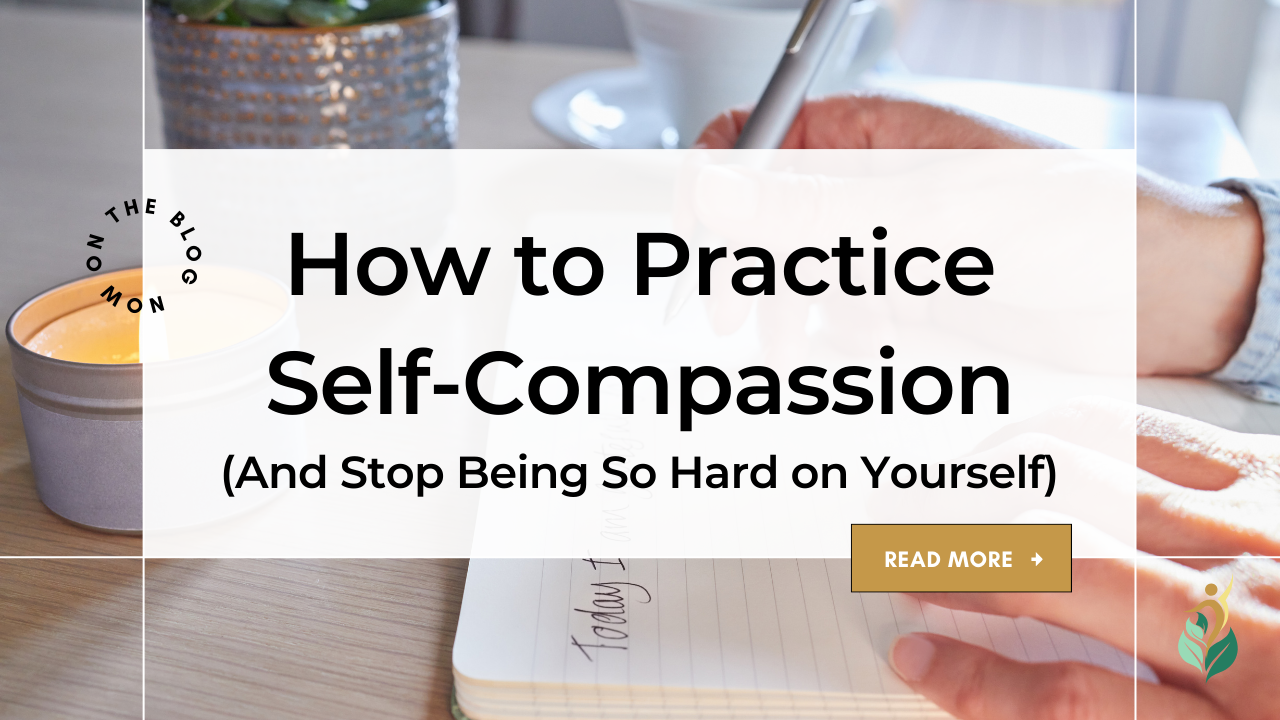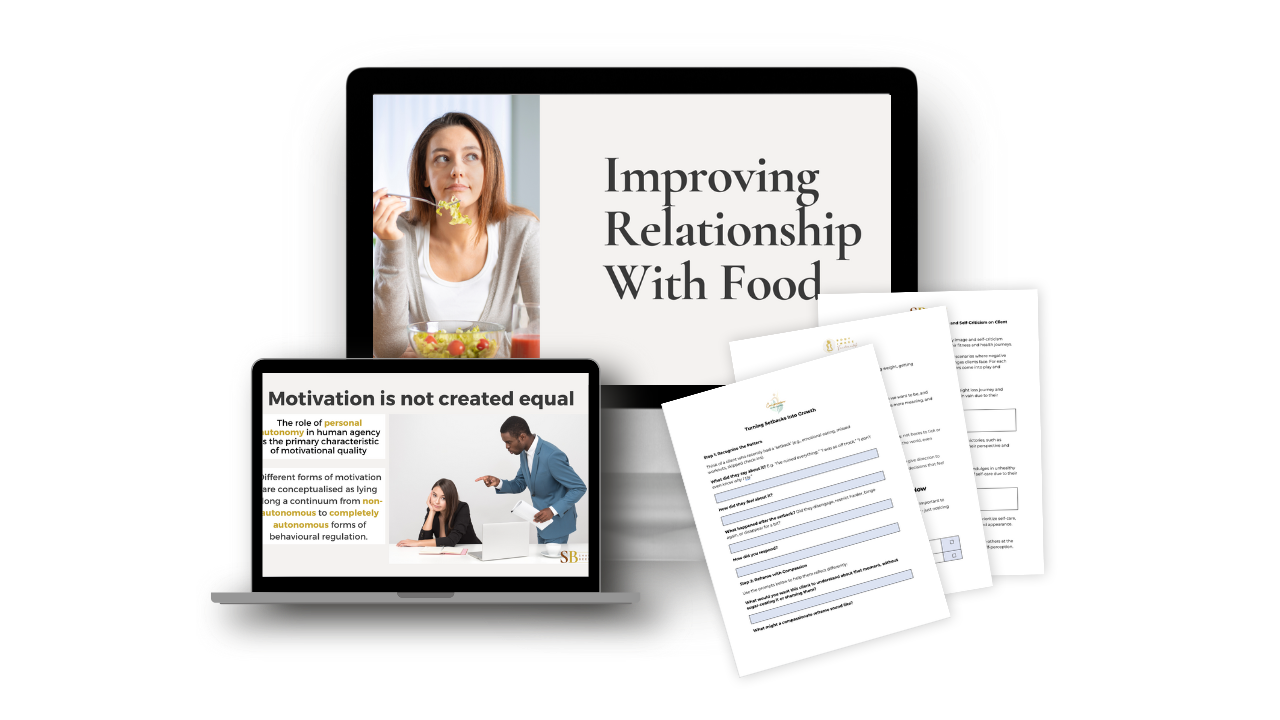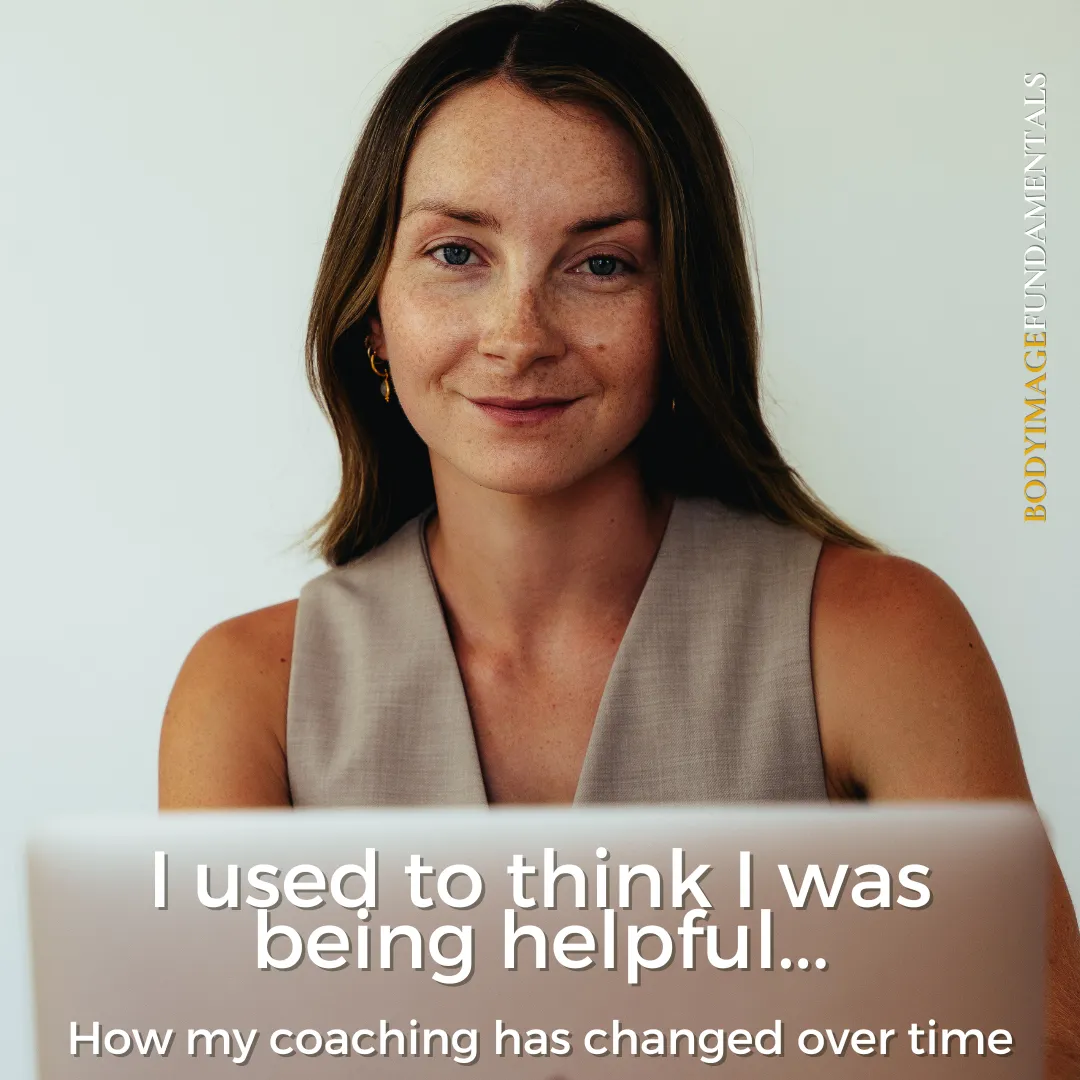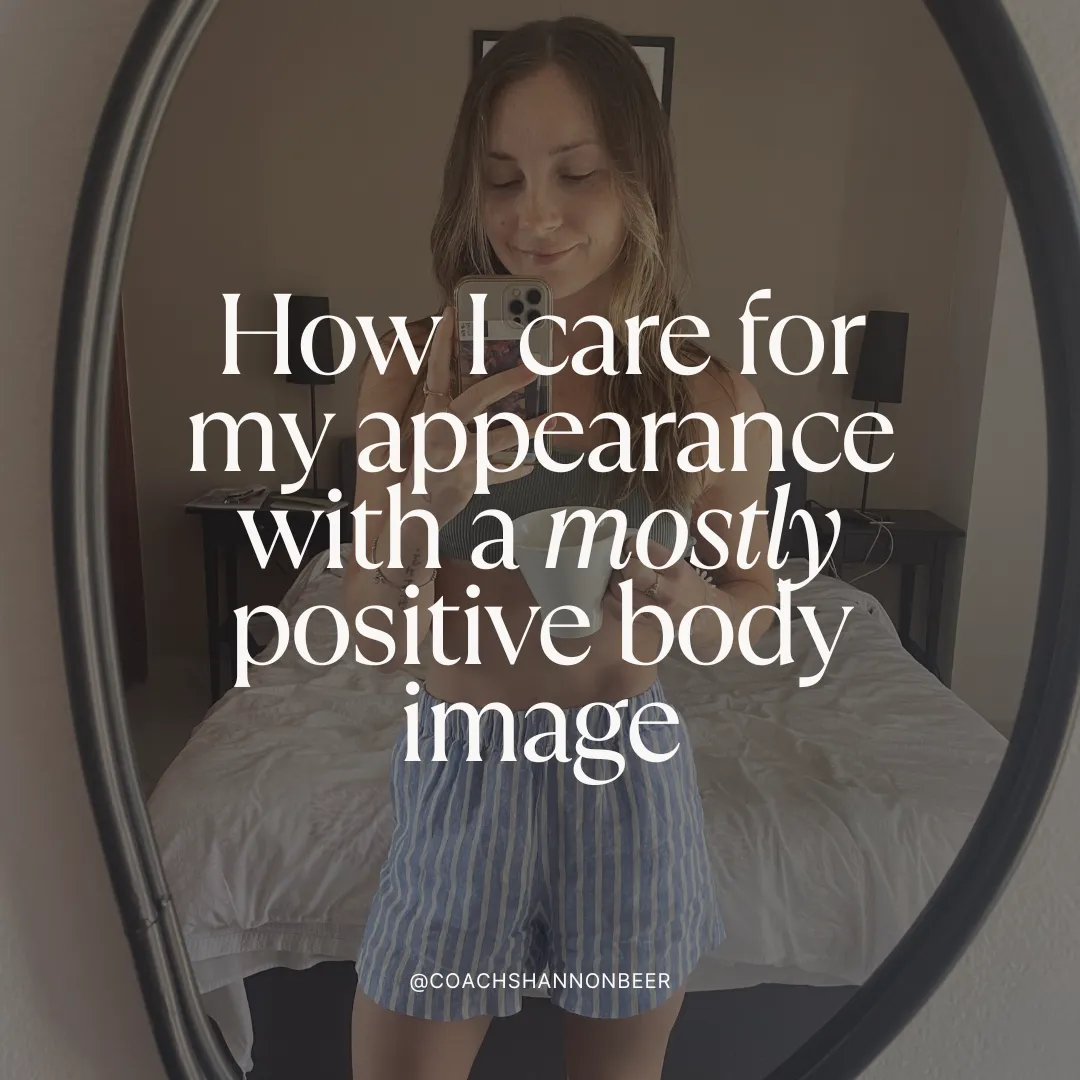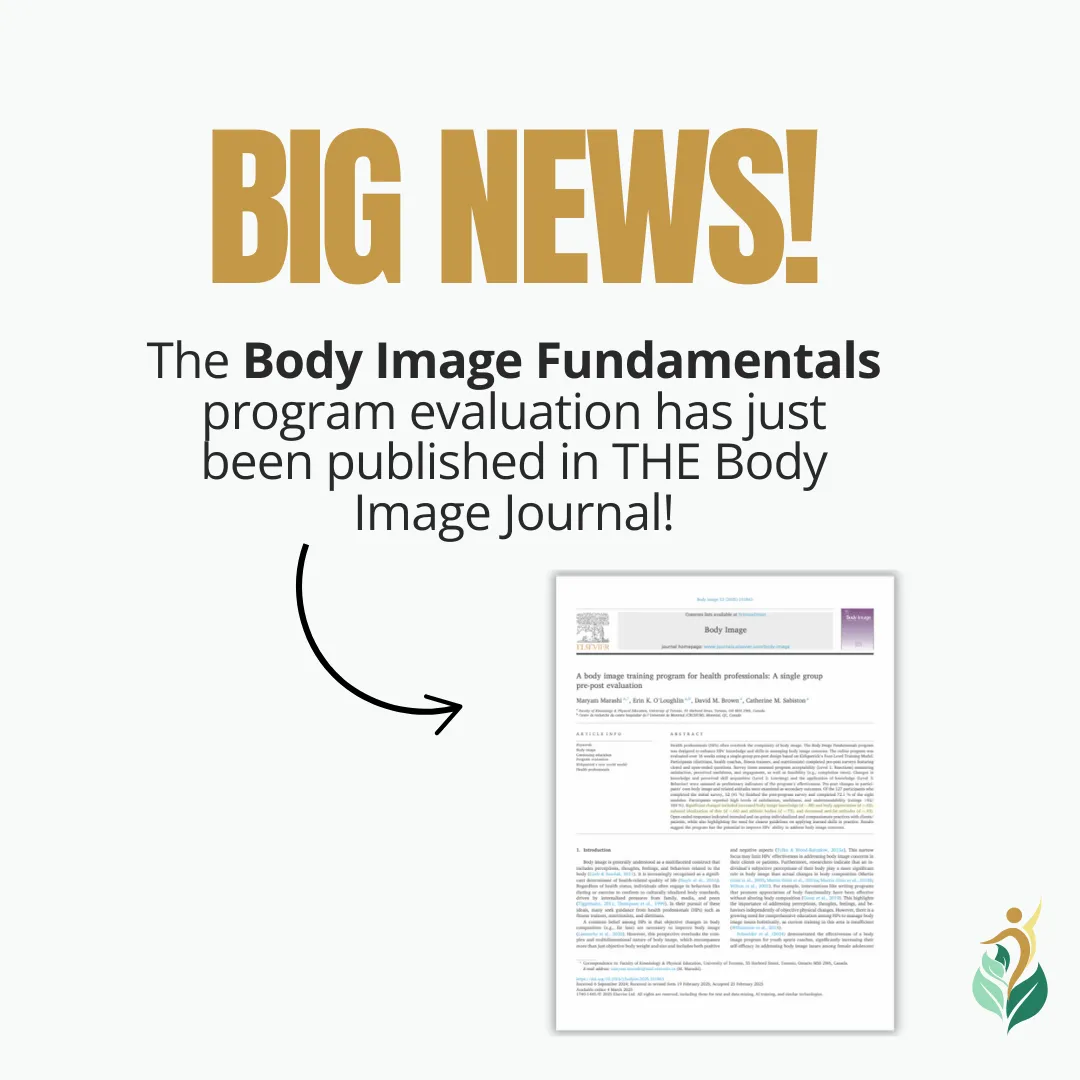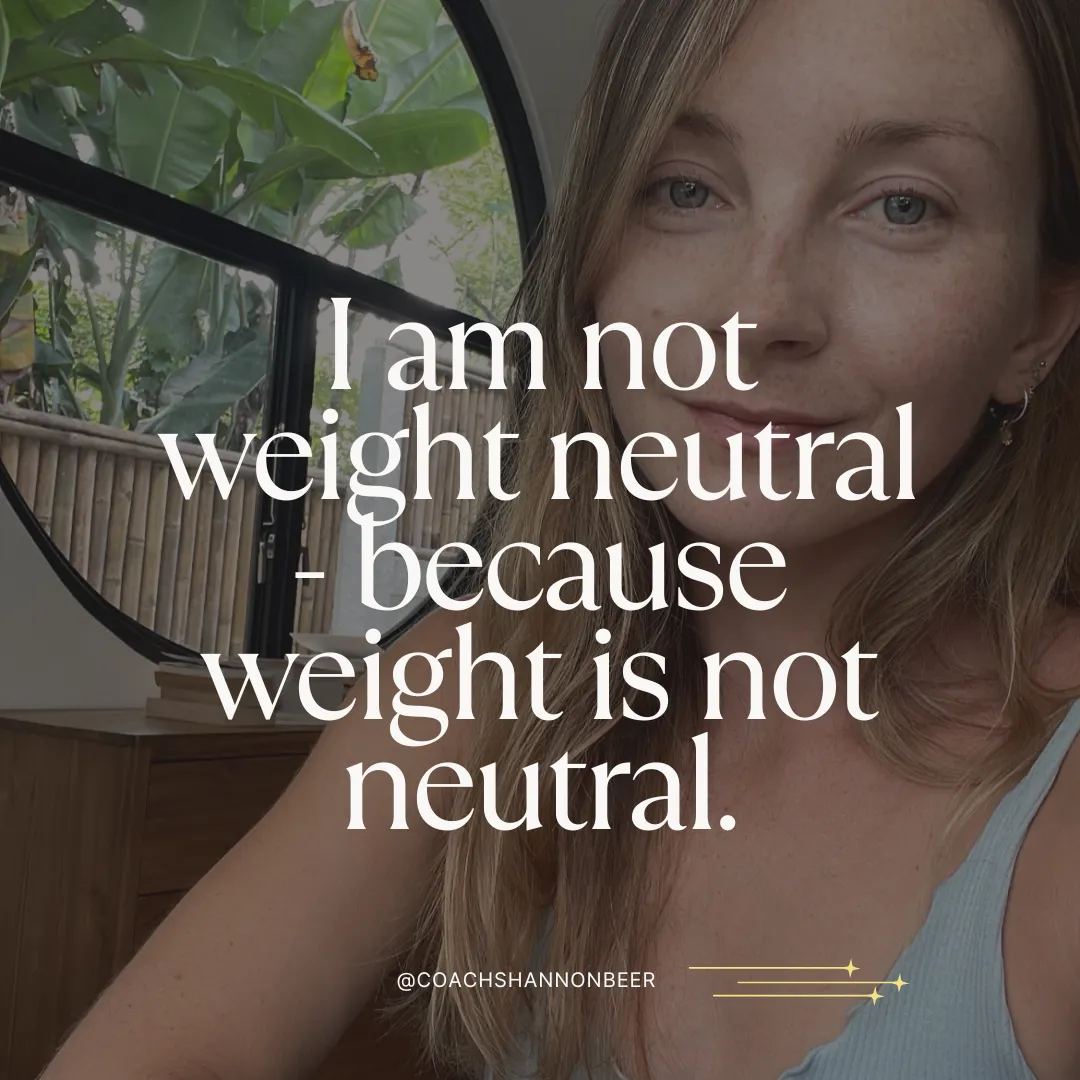How To Appreciate Your Body
Jul 28, 2022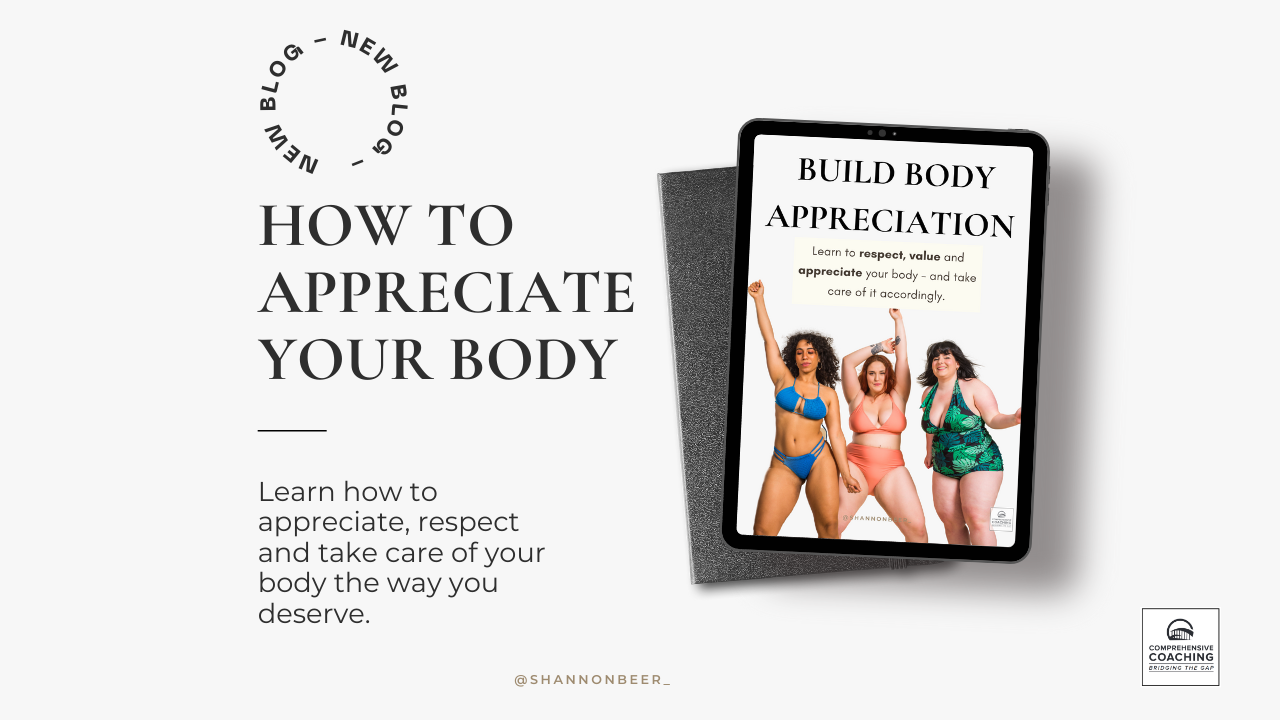
Are you comfortable in your body?
Are you attentive to its needs?
Do you appreciate its uniqueness?
Do you take care of your body?
…Or do you feel like you are constantly at war with your body?
If you resonate more with the latter, you are not alone.
It can be hard to appreciate our bodies in a culture where physical appearance is highly valued, a key source of self-worth, and a social currency for attaining status.
Here’s some good news...
Body appreciation is something we can actively develop.
We can learn to accept, value and respect our bodies. We can look after ourselves the way we deserve.
Body appreciation has four core features:
- Holding positive attitudes towards our bodies, regardless of appearance
- Accepting our bodies and appreciating what makes them unique
- Respecting our bodies by attending to our needs and engaging in healthy behaviours to care for ourselves
- Protecting our bodies by rejecting unrealistic appearance ideals found in media (e.g., social media, TV, movies)
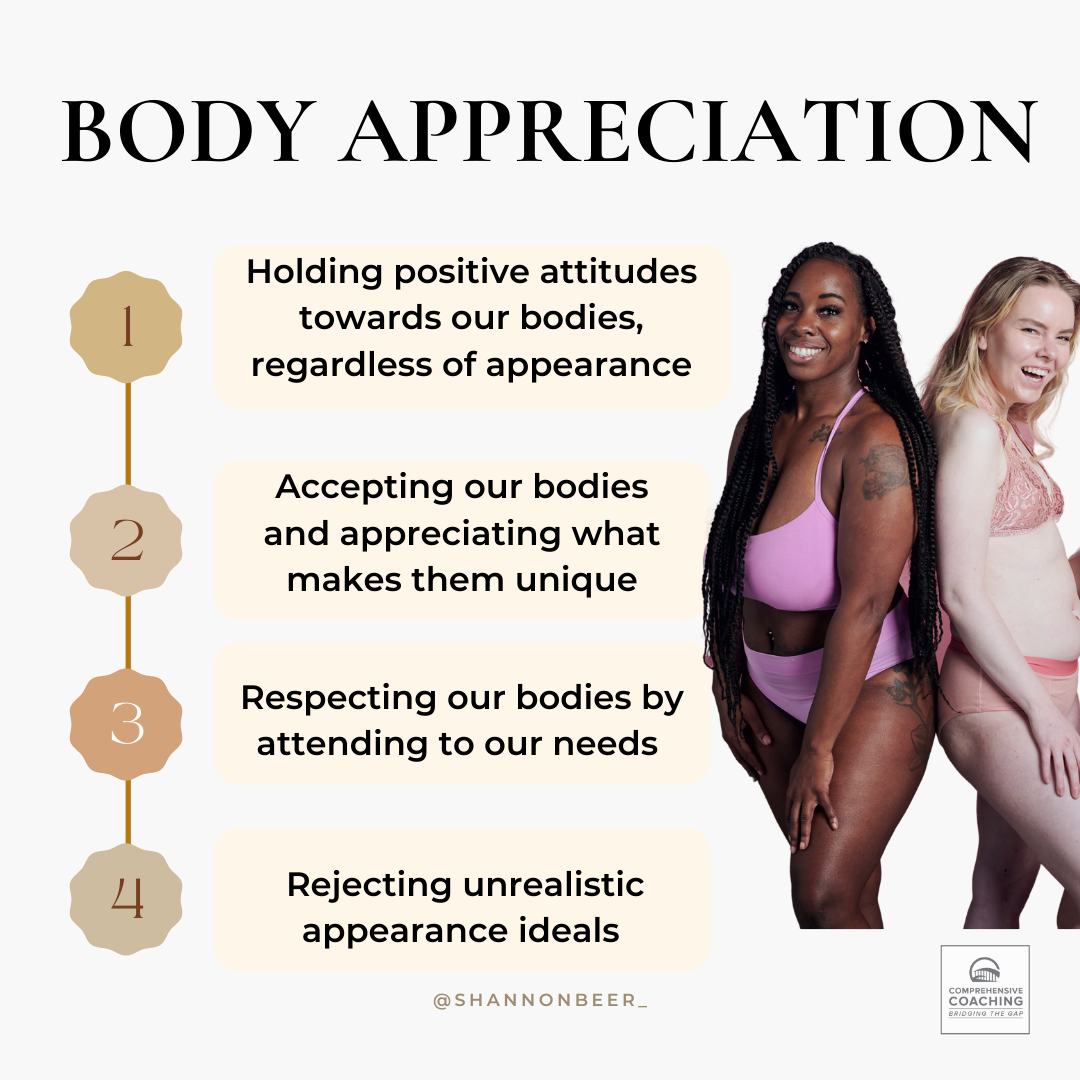
Body appreciation is inversely related to:
- Eating pathology and restraint
- Body image disturbances, including: appearance-ideal internalisation, body surveillance, sociocultural pressures, body shame
- General psychopathology, including: depression, anxiety, maladaptive perfectionism
And positively associated with:
- Intuitive eating
- Self-esteem
- Self-compassion
- Sexual satisfaction
This means that people who appreciate, accept, and respect their body are less likely to experience body discontent, want to modify their appearance, be influenced by external pressures related to body ideals, and engage in disordered eating.
Perhaps this sounds a bit too good to be true - yet research suggests that body appreciation is something we can consciously target and develop.
We just have to work at it.
Here are 5 key steps to get started.
Step One: Developing Gratitude For What Your Body Can Do
So often we are caught up in how we look that we forget to think about all of the things our bodies can do. I don't just mean lifting heavy weights or performing well at the gym, although that's great too. Our bodies perform so many functions for us.
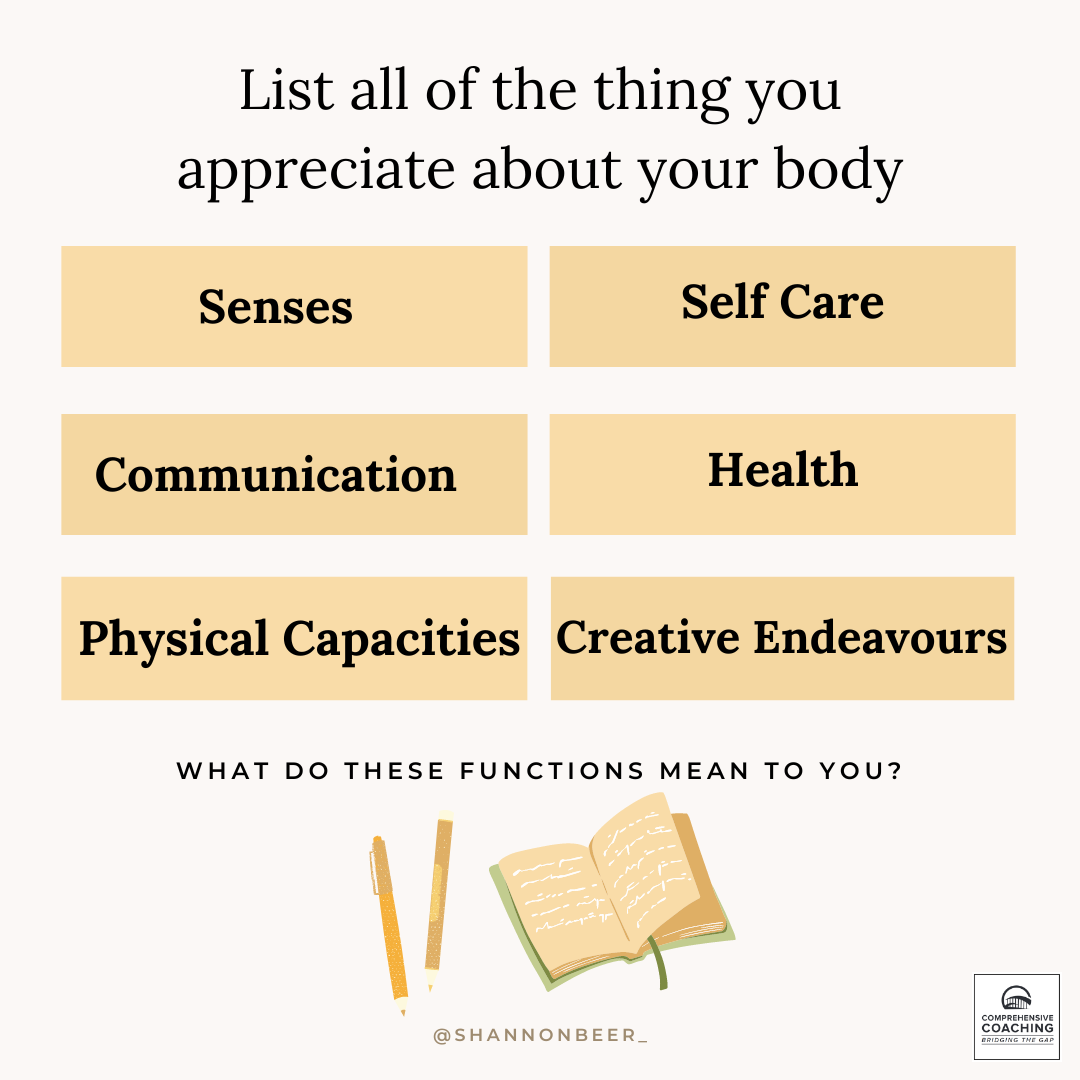
List all of the things that you appreciate about your body and reflect on the functions it performs. This could include:
- Senses: Sights, music, food
- Self Care: Sleeping, showering, cooking, eating
- Communication with others: Talking, cuddling, sex, laughing, kissing, being a shoulder to cry on
- Physical capacities: Walking, stretching, yoga, sports, strength, balance
- Creative endeavours: Drawing, singing, writing, reading, dancing, photograph
- Health: Healing from illness, growing, breathing
Here are some examples of what clients have said:

Now think - how dull would life be if you couldn’t do these things?!
Step Two: Treat Your Body With Respect
When we don’t like our bodies, we tend not to treat them well. We might ignore our hunger, train past the point of exhaustion, be critical towards ourselves, skip medical check ups, or hide and cover up our bodies. This makes it even hard to appreciate ourselves.
Ask yourself: What kinds of things would I do if I honoured and respected my body?
Some ways to show yourself respect might include eating when you’re hungry, engaging in empowering forms of movement to keep your body active, taking breaks from work to avoid burnout, walking in nature, resting when you’re tired, expressing your personal style, or expressing sexual desires.
Now think, what do I need to do more of? What do I need to do less of?
Make a commitment to yourself.
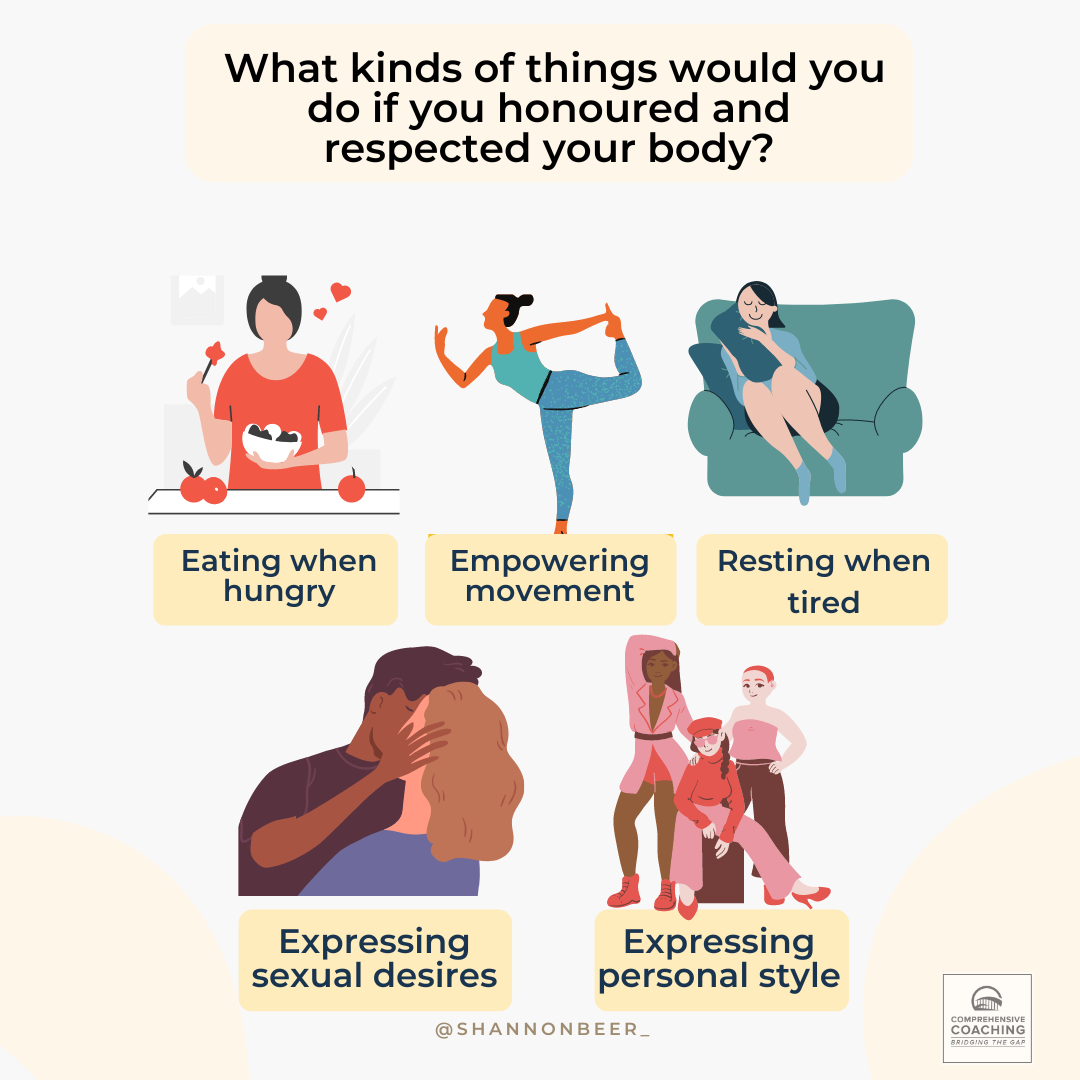
Step Three: Minimise Body Checking
Most of us don't realise how often we check our bodies. Common body checking behaviours include self-weighing, staring in the mirror, comparing oneself to other people, or pinching various body parts to assess for fat and muscle. These behaviours can become so habitual that we often do them subconsciously. How many times a day do you check your appearance?
There's nothing wrong with looking at yourself every now and then but there's a big difference between simply fixing your appearance and constantly feeling compelled to inspect, scrutinise and pick at your body. It may be worth minimising the frequency of these behaviours whilst you work on appreciating your body. It's hard to improve your body image if you're always thinking about how you look.
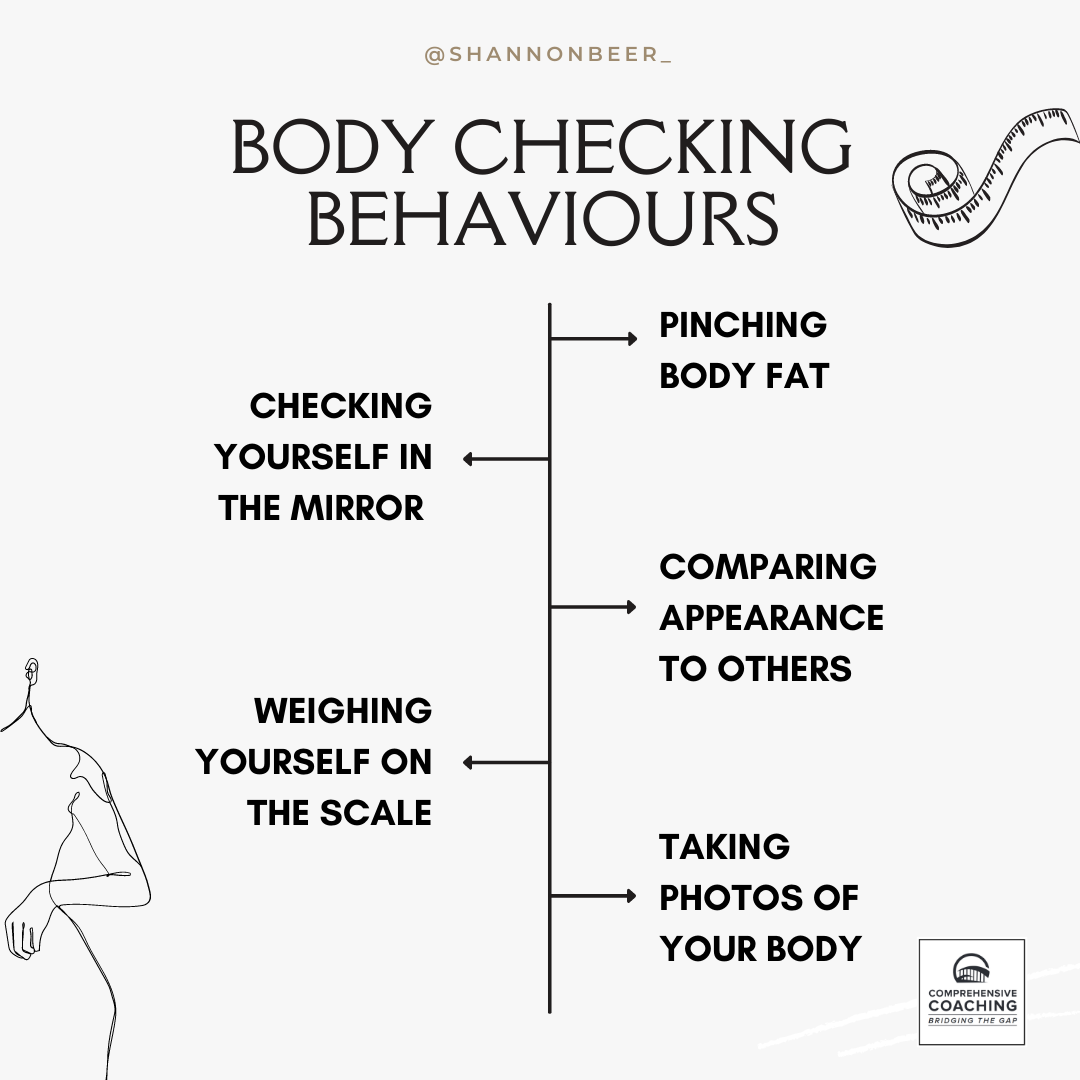
Choose 3 checking behaviours you would like to reduce and make a plan for how you will do this. You could:
- Reduce gradually your checking behaviours (e.g., reducing the frequency of looking at yourself in the mirror).
- Limit your checking behaviours - allow certain ones to be done only once or twice a week (e.g., weighing yourself only once a week at a specific day and time).
- Eliminate some checking behaviours altogether (e.g., stop pinching your body fat).
- Postpone checking behaviours (e.g., allow yourself to check or measure something only at a certain time of the day. If you are tempted to check at other times, remind yourself that you will check later).
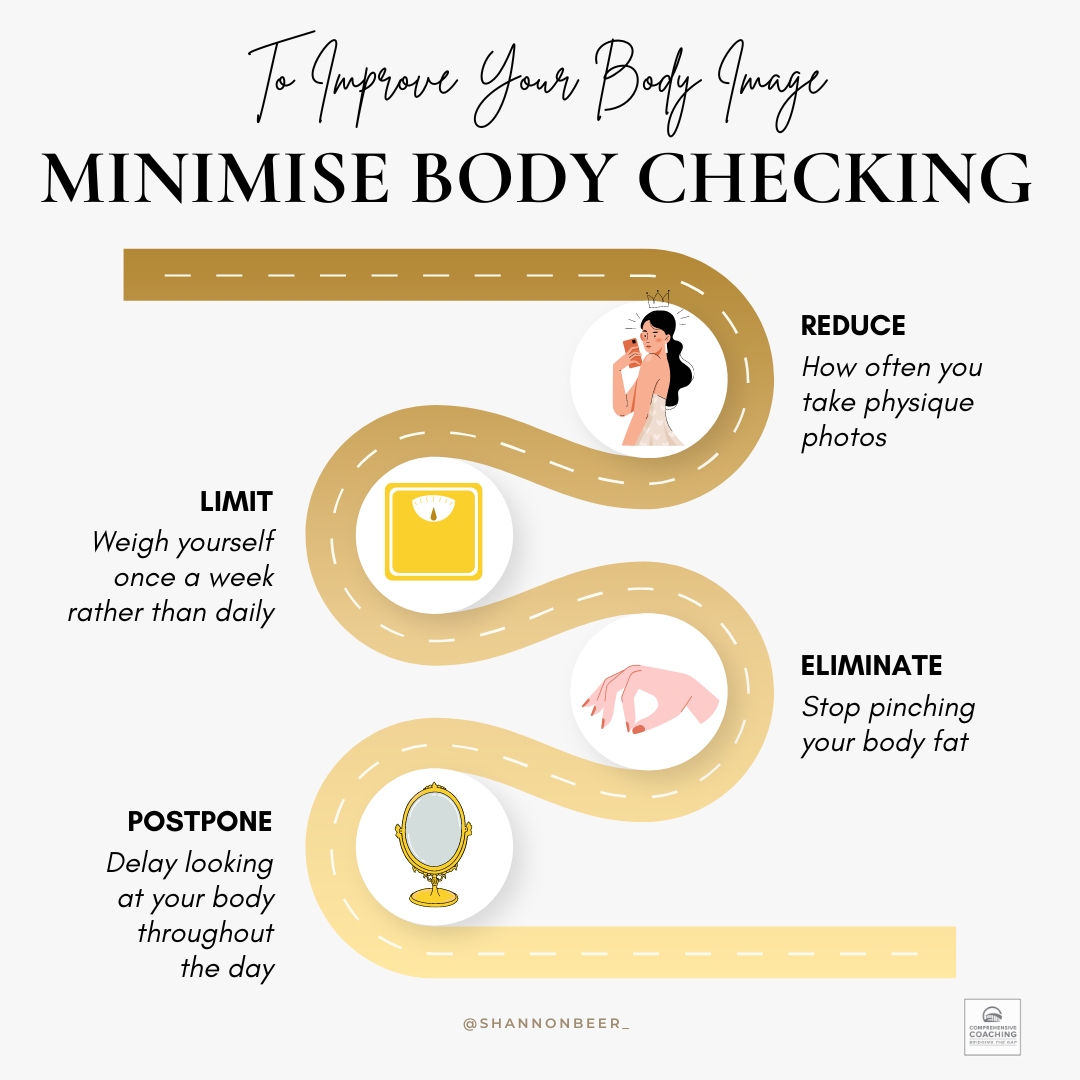
Step Four: Inhabit Your Body Internally
Exercise is good for us right..?
It depends!
Exercise can be very beneficial to our physical health and psychological well-being. Yet if we’re preoccupied with burning calories, pushing ourselves when we need a rest, or focused primarily on exercising as a means to modify our appearance, we may be doing more harm than good.
Exercising for health and wellbeing as a primary goal, rather than predominantly appearance reasons, can be a far healthier approach to movement. That’s not to say we totally give up caring about how we look, but we keep our preferences in perspective and choose to put health first.
There are many life-enhancing reasons to exercise. See if you relate to any of the following:
- To maintain health
- To feel strong in my body
- To feel strong in my mind
- To feel relaxed
- To feel refreshed
- To meet new people
- To accomplish a personal goal
- To challenge myself
- To test what I can do
- To be proud of myself
- To demonstrate what I am capable of
- To feel a sense of mastery
- To have fun
- To work out tension
- To channel my energy in positive ways
- To acquire a new skill
- To promote longevity
- To be outside/in nature
- For self care
Any form of exercise can be life-enhancing when there is a foundation of health and well-being, we focus on the process of becoming more aware, connected, and responsive to our bodies, and experience joy through physical activity. Research suggests that engaging in mind-body activities such as yoga, martial arts or team sports can be particularly beneficial ways to cultivate a favourable relationship with your body.
Practice relying on your internal cues (how your body feels) to determine when, what, where and how to exercise. Want to try something new and switch it up? Give yourself permission to explore different forms of movement that feel good to you.
Step Five: Cultivate Self Compassion
Are you very self critical? Most of us find that we like to extend compassion towards others, but have a hard time being compassionate towards ourselves. Being self-compassionate involves acknowledging when we’re having a hard time, being nonjudgmental and kind towards ourselves, realising we’re only human, and being committed to doing our best to minimise our distress.
Research consistently points to self-compassion as a trait that can be cultivated to help us to appreciate and respect our bodies - even under challenging circumstances. Self-compassion allows for positive embodiment, is associated with positive body image, and is protective against eating pathology. Self-compassion is strongly associated with body appreciation, most likely through lower levels of body concerns and less focus on our appearance.
Compassionate Letter Writing
Writing a letter to yourself can be a helpful way of expressing self-acceptance, understanding, and compassion. This might be particularly valuable when faced with difficulty or challenging emotions. The idea of compassionate letter writing is to help you refocus your thoughts and feelings on being supportive, helpful and caring of yourself. Research suggests that this is an effective way of developing appreciation for your body.
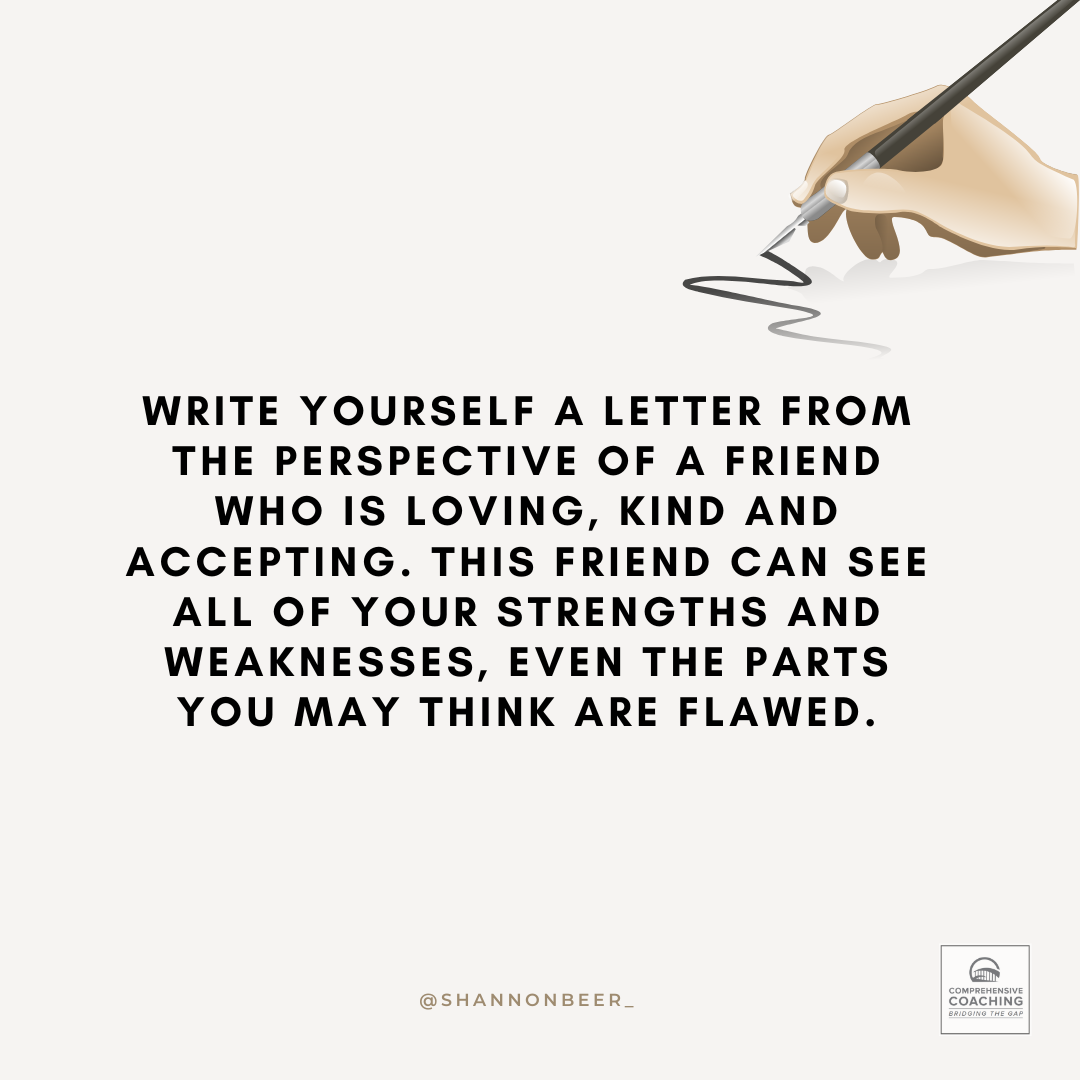
For example, your letter might start with: It’s understandable that you are so done with battling with your body. I know you’re tired of it. You don’t have to feel ashamed of struggling with this - you’re far from the only one. There’s nothing wrong with you. I would like you to know that you are good enough the way that you are. I wish you could see all of the amazing things your body can do for you. Remember that time when you went on an incredible hike in the mountains with your friends? What an experience. Maybe it would be nice to seek out more experiences like that, even on a smaller scale. What would it feel like to spend more time in nature, or connecting with your body more frequently?
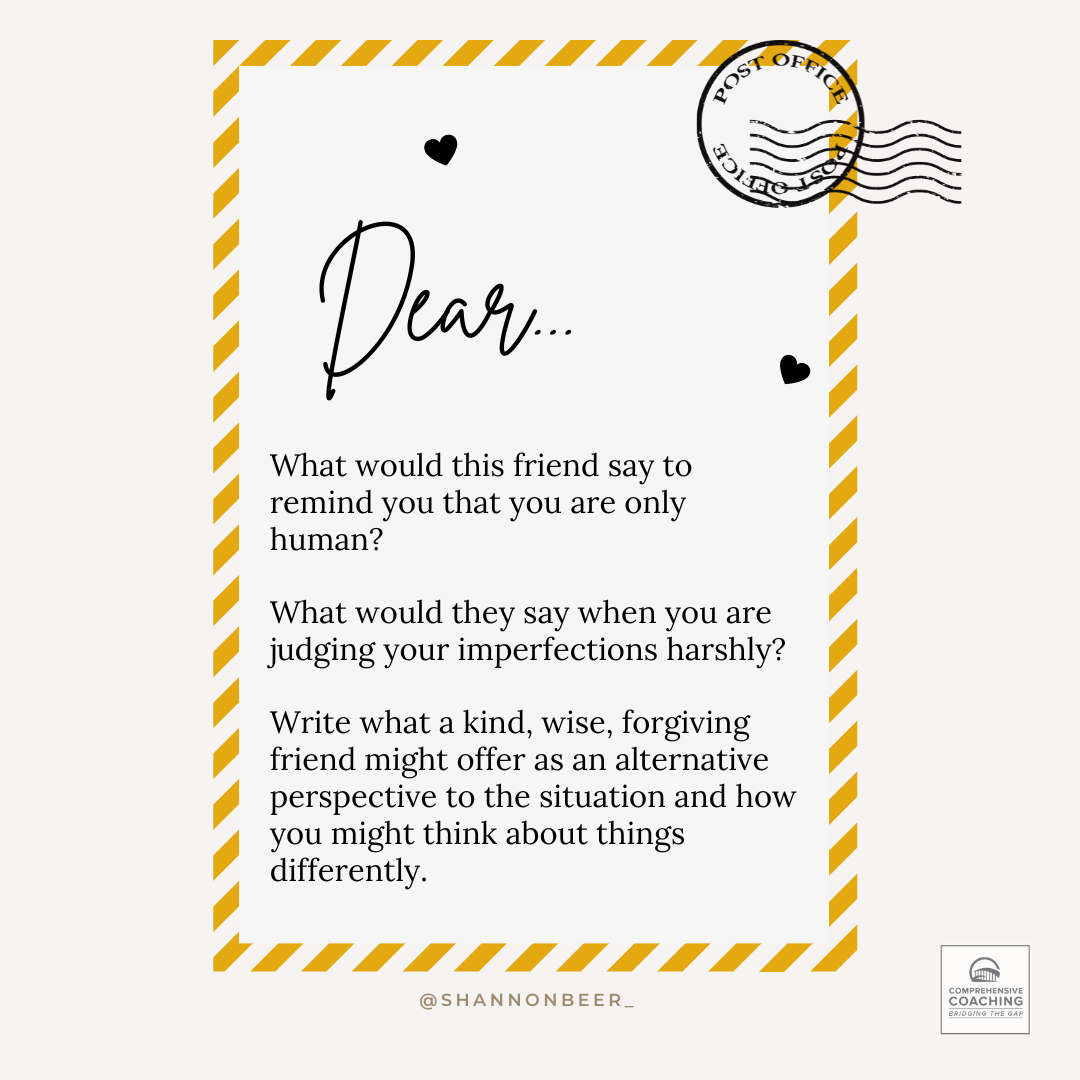
So there we have it, five key steps to developing body appreciation.
Now, I do want to stress…
This will take consistent effort and practice.
If you don’t take action on it, reading an article won’t do much to change how you feel about yourself.
So make a start today. Decide now which one of the recommendations you'd like to give a go. Then take action.
Learning to appreciate yourself can take time. Be kind to yourself and keep persisting. It will be well worth it.
Download your free Body Appreciation workbook HERE.
References
Alleva, J. M., Tylka, T. L., van Oorsouw, K., Montanaro, E., Perey, I., Bolle, C., Boselie, J., Peters, M., & Webb, J. B. (2020). The effects of yoga on functionality appreciation and additional facets of positive body image. Body image, 34, 184–195. https://doi.org/10.1016/j.bodyim.2020.06.003
Anderson, Cleo & Messer, Mariel & Rodgers, Rachel & Fuller-Tyszkiewicz, Matthew. (2021). Body image flexibility and its correlates: A meta-analysis. Body Image. 37. 188-203. 10.1016/j.bodyim.2021.02.005
Andrew, R., Tiggemann, M., & Clark, L. (2016). Predictors and health-related outcomes of positive body image in adolescent girls: A prospective study. Developmental Psychology, 52, 463–474. https://doi.org/10.1037/dev0000095
Braun, T. D., Park, C. L., & Gorin, A. (2016). Self-compassion, body image, and disordered eating: A review of the literature. Body image, 17, 117–131. https://doi.org/10.1016/j.bodyim.2016.03.003
F. J. Penedo and J. R. Dahn. Exercise and well-being: A review of mental and physical health benefits associated with physical activity. Curr Opin Psychiatry 2005; 18: 189–93.
Gilbert, Paul. (2009). Introducing compassion-focused therapy. Advances in Psychiatric Treatment. 15. 199-208. 10.1192/apt.bp.107.005264.
Kelly, A.C., Miller, K.E., Vimalakanthan, K., Dupasquier, J.R., & Waring, S.V. (2019). Compassion-Based Interventions to Facilitate Positive Body Image and Embodiment. Handbook of Positive Body Image and Embodiment.
K. J. Homan and T. L. Tylka. Self-compassion moderates body comparison and appearance self-worth’s inverse relationships with body appreciation. Body Image 2015; 15: 1–7.
K. Neff, (2003). Self-Compassion: An Alternative Conceptualization of a Healthy Attitude Toward Oneself. Self and Identity - SELF IDENTITY. 2. 85-101. 10.1080/15298860309032.
Linardon, J., McClure, Z., Tylka, T. L., & Fuller-Tyszkiewicz, M. (2022). Body appreciation and its psychological correlates: A systematic review and meta-analysis. Body image, 42, 287–296. Advance online publication. https://doi.org/10.1016/j.bodyim.2022.07.003
M. B. Lichtenstein, C. J. Hinze, B. Emborg, et al. Compulsive exercise: Links, risks and challenges faced. Psychol Res Behav Manag 2017; 10:8 5 –9
N. L. Wood-Barcalow, T. L. Tylka, and C. L. Judge. Positive Body Image Workbook: A Clinical and Self-Improvement Guide. Cambridge: Cambridge University Press, 2021.
R. M. Calogero, T. L. Tylka, B. Hartman McGilley, et al. Attunement with exercise. In Tylka, T. L., and Piran, N. eds. Handbook of Positive Body Image and Embodiment: Constructs, Protective Factors, and Interventions. New York: Oxford University Press, 2019: 81–90.
Swami, V., Airs, N., Chouhan, B., Amparo Padilla Leon, M., & Towell, T. (2009). Are there ethnic differences in positive body image among female British undergraduates. European Psychologist, 14, 288–296. https://doi.org/10.1027/1016-9040.14.4.28
Tylka, T. L., & Wood-Barcalow, N. L. (2015). The Body Appreciation Scale-2: Item refinement and psychometric evaluation. Body Image, 12, 53–67. https://doi.org/10.1016/j.bodyim.2014.09.006

Stuck In All Or Nothing Mode?
Your mind isn’t broken; it’s just running on autopilot.
Take the free Emotion System Audit and learn what's driving your patterns - and what to do when you feel overwhelmed or out of control.


